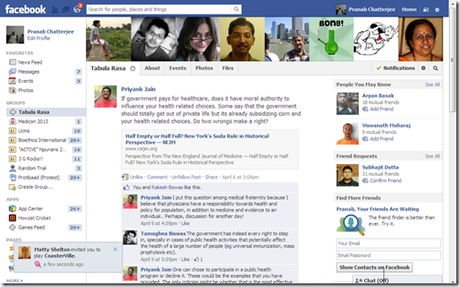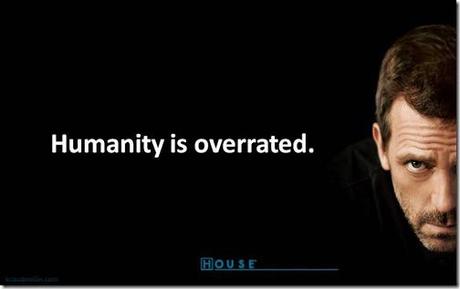Paternalistic attitude in unilateral implementation of public health policies, especially with respect to banning of (harmful) substances, has been one of the issues that I have been debating not only with my colleagues, but also with my own self, for a while now. Aside from the obvious stake in the matter as a student of Public Health and Community Medicine, this has been an issue that has left me in a bit of an ethical and moral quandary. This Perspectives article in the New England Journal of Medicine just irked the sense of confusion and vacillation in me again, inspiring this post in the middle of what has been a torrid season of writer’s block.
So, some background before the commencement of my rant. New York City’s charismatic Mayor, Michael Bloomberg, in a bid to tackle the obesity epidemic in USA, proclaimed a law, which forbade the sale of any “sugary drink” that was larger than 16 oz. Obviously, Big Fizz was not going to take this lying down and they took it to court where Manhattan state Supreme Court Justice Milton A. Tingling struck down the law, saying:
the rules are “arbitrary and capricious,” applying to only certain beverages and only certain stores.
“The loopholes in this rule effectively defeat the stated purpose of this rule,” he wrote, complaining of “uneven enforcement even within a particular City block, much less the City as a whole.”
Fox News
Bloomberg obviously thinks that the ruling is a grave error and vows to take the cudgels up until he wins.

Now, to come to the dilemma that has been ailing me. And this isn’t just me. This issue has raised passions on our Facebook Healthcare discussion forum Tabula Rasa as well:

The question that has been plaguing me is:
Does the Government or any public health regulation body have the right to infringe on an individual’s right to make a choice in order to regulate their behavior for the sake of the greater good?
And in my opinion, there is no simple, straight forward answer to that question. Before you lash out at me for my stand, mind it this is a stand that is evolving and is open to debate and discussions, and very likely to change in the future. Like I once said on this blog, this is my way of thinking out loud and inviting discussion and discourse to help modify and train my way of thinking.
So, if the disease in question is an infectious one, where there is an immediate risk of danger to the people around you, it makes sense for the Government or the public health bodies to step in and modify behaviors. That is the basis of all our activities in the field of immunization and primary prevention of diseases. Without this intervention, we would still be suffering from small pox or polio. So, there is little debate about the regulating agencies stepping in to modify behavior associated with issues that are likely to affect the susceptible population from an index case.
The issue gets more complicated for conditions like obesity or diabetes, which are classic non-communicable diseases, yet, the burden of which, directly or indirectly, may affect people all around the afflicted one. Thus, in a country with a national, universal health insurance system, where the money to pay for the healthcare demands of an individual comes from the taxes of all, these NCDs may pose a major problem. Taking the example of a diabetic patient, one can argue, that since he is using up more resources and causing a higher burden on the monetary demands of the system (and hence, indirectly, on the individual via inflation and taxes), his non-communicable disease is spreading monetary misery all around.
In such a case, can we not extend the same logic we applied to infectious diseases, to curb behaviors or risk factors known to precipitate diabetes in a person who is predisposed to it?
On the flip side of the argument, we have the question of autonomy.
We debate issues of patient autonomy, the right to choose one’s own treatment (or sometimes, even the lack thereof: remember Kerry Wooltorton, anybody?), and the ability to make informed decisions. As physicians, we stand on the high pedestals of Patient Centered Care or User Driven Healthcare or Shared Decision Making and demand that the patient be informed about all the pros and cons about the decision they are making, be informed about what other alternatives they have… and then let them make their own decisions. So, why can we not do the same when it comes to public health issues?
In an ideal world, we would not need to ban any substance, no matter how deleterious they were. We would need to empower the population and then let them make the decisions. However, that calls for an inordinate amount of awareness and motivation on the part of the “public” to make such liberal public health systems work. To address the subsequent issue of greater demand on health systems by the individuals who ultimately “fall prey” to their “indiscipline”, one could argue the case for institution of penal measures, like higher premiums on health insurance or more restricted coverage. But, that in itself is another matter to debate about!
It is all nice and good to discuss these theoretical implications. But coming to the ground realities, especially in a nation like India, where the strain on the resources is severe and the supply, minimal, we need to take a long and hard look at issues like Behavior Change Communication, which has traditionally been long-time investments with unpredictable outcomes. Another major problem is adherence to instructions/treatment regimen. Although it shall be difficult to unearth national level statistics on this, I am sure all clinicians will agree when I say that owing to the lower socio-economic, educational and awareness levels, people do not tend to have good compliance with prescribed treatment. This is when they are suffering from a diseases and perceive the need to take medicines to alleviate their symptoms. I wonder how difficult it shall be to inspire the same person, who is loathe to take medicines for an ailment, to stick to a behavior pattern (that may be quite ascetic and unrewarding in the short run) to prevent a disease in some distant future! In this age of globalization and instant gratification, it seems to be a difficult practical point to implement the “ideal world” scenario.
So, I guess, threshing it out, for me, autonomy and the ability to be one’s own master ranks way higher than paternalism in public health for the greater good. It has its pitfalls and most definitely is not the ideal way to go about ensuring that everyone enjoys life with the best possible levels of health, both of mind and body; but at the same time, it leaves with the individual, that very important essence of freedom to decide. And that, for me, is paramount! So, despite all the negatives, I would rather that the individual is given the right to choose his way of life rather than impose on him a “healthy” lifestyle.

